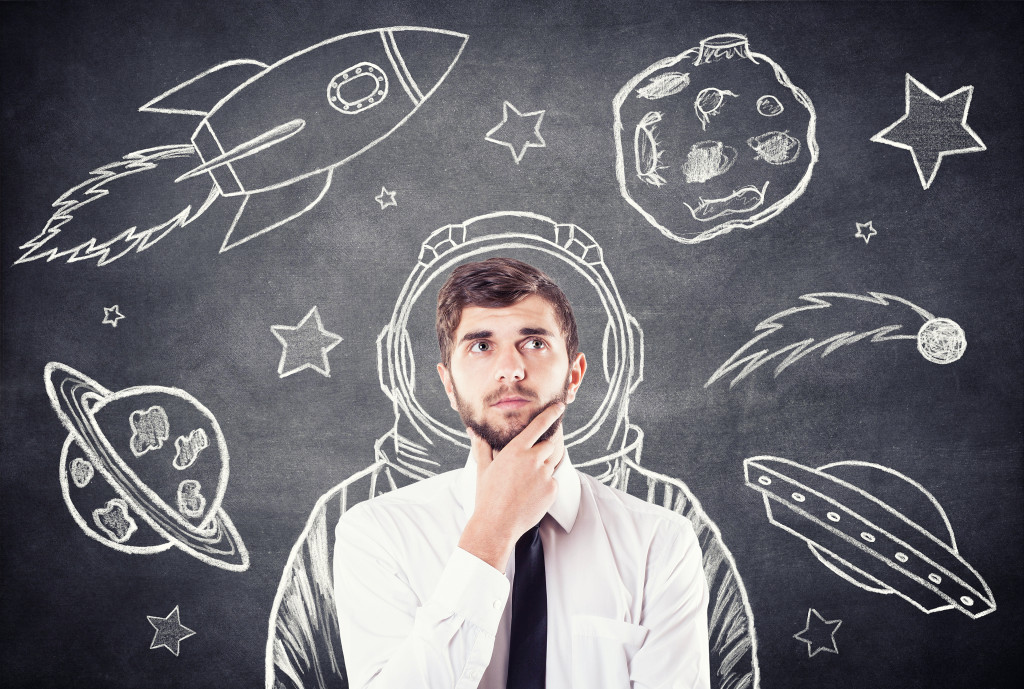Dubbed as the commercial space age, the last two decades witnessed ambitious efforts for space tourism. After all, Elon Musk’s SpaceX is making strides in reusable spacecraft and promising an all-civilian flight soon. Entrepreneurs need to develop existing industries to meet the demand that accessible space travel will bring with it. Early involvement in troubleshooting the logistic concerns for a multi-billion dollar industry can give business owners a leg up when it is finally open for the public to experience.
Where people exist, the need for supplies arises. If entrepreneurs and investors want their ventures to survive the challenges of space tourism, they can conduct tests on the durability of their products. They should work with a reliable courier pick-up service to get used to the distances that their goods travel. Shipping what they sell to anywhere on earth can be a great way to check the effects of long-distance, temperature, and other factors and make adjustments accordingly.
Business owners who become the suppliers for food, entertainment, and amenities in space will have the opportunity to be leaders in a new market gap. It’s one created by a novel kind of tourism. Being the first ones to provide for any early industry will allow room for improvement while others are still deciding whether to set up their business ventures. Here are some considerations to make for the aforementioned demands that will arise once space tourism is finally ready to take off:
1. Food
When astronauts are on board, they make adjustments to their diet. This is because of how objects behave in space differently due to the changes in, and lack of, gravity. For example, water is not placed in bottles but packets. It’s where the water is sucked out rather than poured to avoid liquid floating and possibly damaging the sensitive and expensive technology on any spacecraft.
In the same way, any entrepreneur entering the industry will need to consider the weight of their packaging and how the food will interact with zero gravity. They also have to look at the impact of the temperature onboard on the quality and if the astronauts need to adjust the temperature of the product when they consume it. Every bit of fuel and mass counts in space as a magnified expense under extraordinary circumstances. That is unless a cheaper fuel can be discovered for space travel.
Similar to how Pizza Hut made a successful public relations stunt when they “delivered” pizza onboard the International Space Station, businesses have the opportunity to develop new sorts of food that people can consume in space. The cuisine for astronauts has come a long way from tubes of mashed paste and MREs. Now, they make burritos, enjoy spaghetti, and get to pick other things from a broader menu.
2. Entertainment

At the moment, some main leisure activities astronauts can do are to read, play music, go for a spacewalk, look at the earth, browse on social media, and watch TV. They only have a bit of free time because they are mostly busy conducting experiments in space. Unlike astronauts, tourists are not on a mission.
Once they have taken pictures of their view from their spacecraft, some tourists might find the experience underwhelming due to their access to the same photos online. They could be excited by being physically in outer space, but once the short trips become a longer journey, there will be a need for entertainment. Producers can develop entertainment specific for space travel. They can incorporate enhanced views of the earth from space and maybe even holograms to keep the travelers amused.
3. Toiletries
If private space travel were to start now, tourists might find it impossible and catastrophic to take showers in space. The zero gravity will cause water to form beads and possibly hit important equipment on board, sabotaging the trip. Once space tourism involves longer periods of travel, there will be a need for toiletries specific to the conditions of zero gravity.
Currently, astronauts use towels and minimal water to clean themselves. Innovations in this field need to be developed to bring about a more pleasant experience for travelers. Otherwise, they might find themselves to be uncomfortable on the trip, considering the differences from their experience of life on earth.
Space tourism is a developing and promising industry. There are at least thousands of people who have completely traveled all over the world, and space might be their next conquest. Accessible travel to outer space will need many businesses to adapt to survive the upcoming century.

